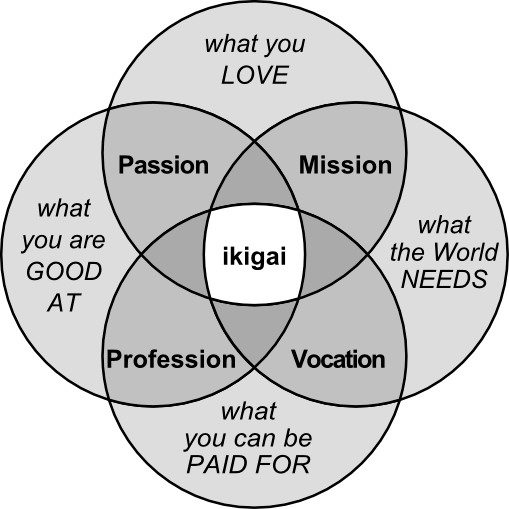3 Essential Steps To Your Dream Job (Step 1): Choosing Which to Apply For

In this day and age, it’s no longer enough to simply be “hard-working” and “passionate”. The job market, and subsequently, the jobseeker experience, has evolved to expect higher standards. Aside from having the necessary skills and attitude, you must also be proactive in marketing yourself and landing that job of your dreams. But where to begin? In this crash course, Kalibrr’s Career Advice will tackle the 3 Essential Steps You Need to Take to land that dream role. We’ll explain what to do, and some strategies on executing them perfectly. Today’s topic covers the very first step: how do you choose which jobs to apply for? Ready? Let’s dive in!
TOPICS
Choosing Which Jobs to Apply For
Whether you’re a fresh grad or a mid-level manager, the hunt for a job that fits you well usually starts with a basic strategy: apply as much as you can, to as many companies possible. Not only is this an ineffective strategy, but it’s a tiring one at that. The key is to focus on a few specific job posts that are very enticing, and very in line with the skills you can offer. Think about it: would a company prefer a generic profile of a candidate who can do everything, or would they prefer someone who is exactly fit for the job? What you have to remember is that you don’t have to be “kind of good” at everything. You just have to be very good at a few specific things. While generalists (people who are semi-good at a lot of things) do exist, they can only flourish if they apply themselves and go deep in specific roles—as will you. All that’s left is to realize that the power of choice is yours. The next question that’s begging to be asked then is: how? How do you choose which jobs are the best fit for you?
The Concept of Ikigai
In Japanese, the term Ikigai roughly translates to that “thing you live for“. And you can view it as the intersection of 4 things:
- What you love
- What you’re good at
- What you can be paid for
- What the world needs
It can be easily visualized based on this Venn diagram:

And it’s startling to see how the interactions of just two points form different things:
- What you love + what you’re good at = Passion
- What you’re good at + what you can be paid for = Profession
- What you can be paid for + what the world needs = Vocation
- What the world needs + what you love = Mission
Here at Kalibrr, we start off advocating that you find a great profession first. Especially if you’re a fresh grad, this is a good jump-off point. What we have to realize is that, the older we get, the more experiences we accumulate in order to be able to figure out a common point where passion, profession, vocation, and mission meet. And while that’s ideal, we also acknowledge that the path to achieving Ikigai is a long journey, one that usually takes a lifetime. So it must be important to remember: it’s okay if you haven’t found the intersection of all 4; you don’t necessarily have to find the one job that fulfills all 4 (you can have a great profession during the day, a passion project at night, and the pursuit of a mission on the weekends); and that this will be an ongoing process that an article alone can’t tackle. That said, we do need to help you find a good jump-off point for these to even materialize. And in order to do so, here are a few guide questions to help you figure out your inclinations for each intersection point:
- What You Love A good measure of figuring out what things you love doing is gauging your energy levels after doing a certain activity. If something leaves you energized and invigorated after doing it, then there’s a good chance it’s something you’re passionate about. You can usually look towards your hobbies for these activities.
- What You’re Good At Figuring out what you’re good at can be challenging. After all, who are you to say that you’re good at something? Luckily, there are a few more sources of feedback you can turn to that can make the guesswork clearer. Pay attention to the feedback you get from peers, bosses, and even friends: if they compliment you on a certain skill, that’s usually a sign that others are recognizing the talent you have. Now, that’s on the external side. Internally, a way to gauge what you’re good at is by measuring your engagement levels. As opposed to your energy levels regarding something you love, engagement levels is when you’re in a state of flow. You know when you’re doing something that just feels so naturally to you, that time just passes? And you can just tell in your gut that you’re getting good at it? That’s flow at play—and entering that state can be a great sign of things that you’re very skilled at.
- What You Can Be Paid For What you can be paid for can be tricky, because some frameworks view this similarly as “what the world needs”. After all, if the world needs it, it’ll pay for it. But the thing is, sometimes, the world doesn’t need something as much as want it. The world doesn’t need more ice cream flavors. But it wants it. So if you make it good enough, people could pay you for it. In this case, paying for it represents the demand in the market for your talent or good. Now, to figure what you can be paid for, you should pay attention again to the people around you. But instead of looking at their praises or compliments, you should pay attention to their requests for help. What do people always ask you advice for? What are people always asking you to do for them, as a favor? Is it hosting their next private party? Tips about backpacking in remote areas? Baking for their next company event? All of these are signs that there’s a demand in the market for talent like yours—and that you can be paid for it if you so tried.
- What The World Needs The important thing to note about what the world needs is that it must be anchored in helping others, first and foremost. This is why this portion makes up one portion of “Mission”. Mission-driven activities are usually about helping better society on a fundamental level: is it helping underprivileged children? Championing women’s rights? These are all inequities and inequalities that could be helped by a crusader like you, and it’s something the world truly needs. So in order to figure you out your mission, determining how your passions can help bring these solutions to fruition can help a great deal.
Choosing The Job You Want
As earlier defined, “job” in this sense is your profession: what you’re good + what you can be paid for. In order to determine your first step in the job-hunt process, answering the guide questions, specifically items 2 & 3, can help pave the way in figuring out which jobs to apply for.






No comment available yet!